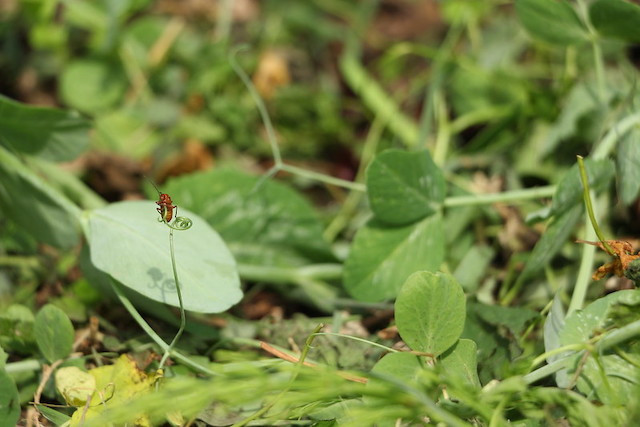Explaining the €2.48m project to Delano on Monday, Differdange municipal secretary Henri Krecké said that more than half of the 120-hectare plot will be dedicated to growing food using permaculture principles, a holistic, self-regulatory approach to farming which works with natural forces.
“We want to grow local produce to better consider the environment,” Krecké said, adding the idea would be to work with European Union initiatives and, through joint ventures with other producers and partners, sell the produce at “Lommelshaff”, an old farmhouse in the urban city centre, which is today listed as a national monument.
Differdange expanded thanks to its steel plant and mining activities. According to Krecké, just two farms remain active in the commune today. “It would be nice to make partnership with them also on our local partners will remain farmers to find new opportunities to grow organic produce together,” adding: “We want to start permaculture production so that we have it for our young generations at the school canteens, for example.”

The 120-hectare site being purchased by Differdange commune can be seen on this map view between Saulnes and the Luxembourg border. Photo: Google maps
Differdange came to the rescue of the 120-hectare plot of privately-owned land in the commune of Saulnes when French firm Eurogranulats made a bid in 2017 to transform the farm and woodland into a landfill site. Both the French and Luxembourg communes opposed the plan. Differdange voted in favour of the acquisition in September 2018 and the final decision was approved on 18 December 2019. Saulnes, meanwhile, purchased a smaller plot close to its football stadium.
Krecké admits, at €2.5m for land in France, the commune paid over the odds. “The price is indeed higher than the common prices in France but cheaper than the prices in Luxembourg. The lowest price we personally got in the recent past in Luxembourg is €300/are, but often the exceed €500-€600/are,” he said.
It is not the first time that the commune will have owned a piece of France. Historically, the village of Lasauvage has straddled the two countries, with its cemetery and part of a lake located on the French side of the border. The civil servant said that the purchase did not change the countries’ borders. “It will stay French and stay part of the commune of Saulnes. We’re not making Luxembourg bigger,” he said.
Luxembourg has pledged to make 20% of its farming practices 100% organic by 2025. In 2018, just 4.4% of farmland was dedicated to organic practices.
